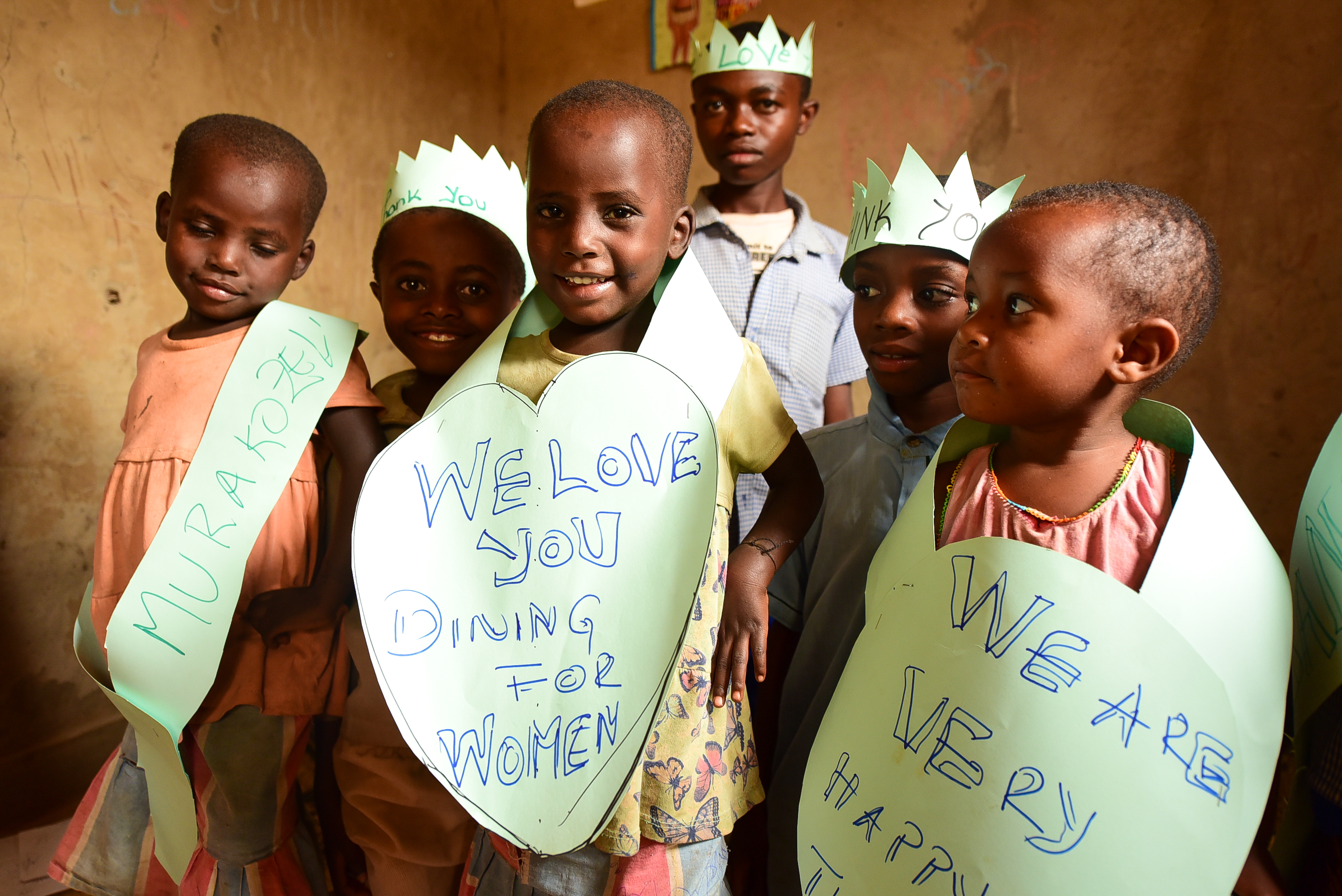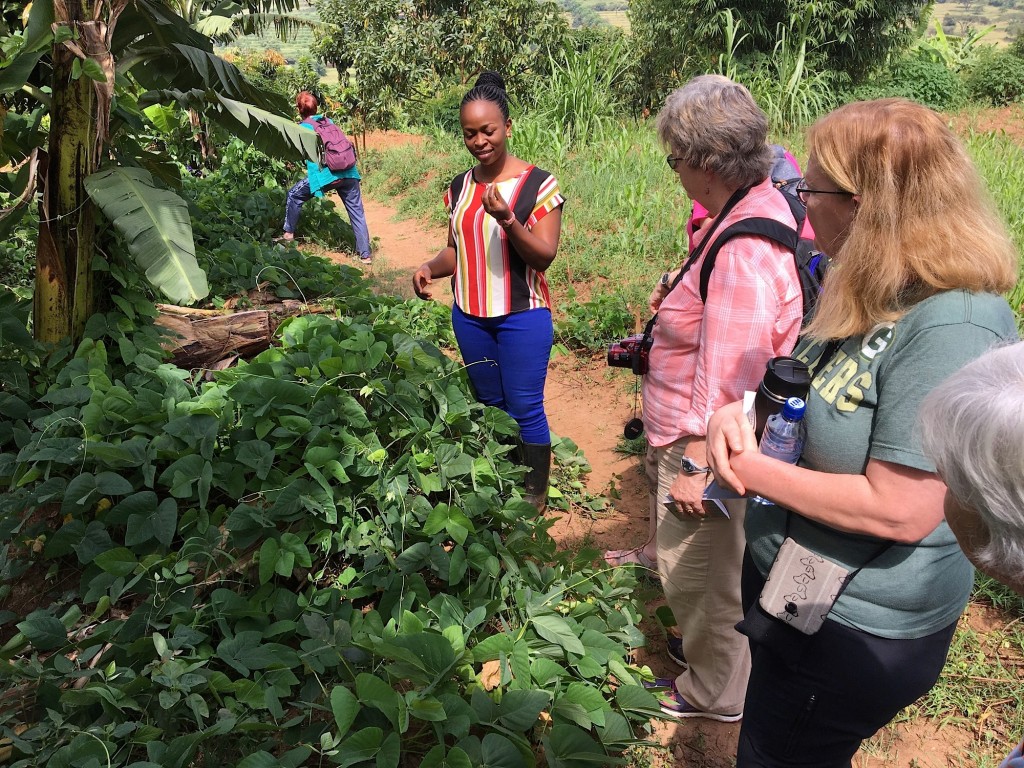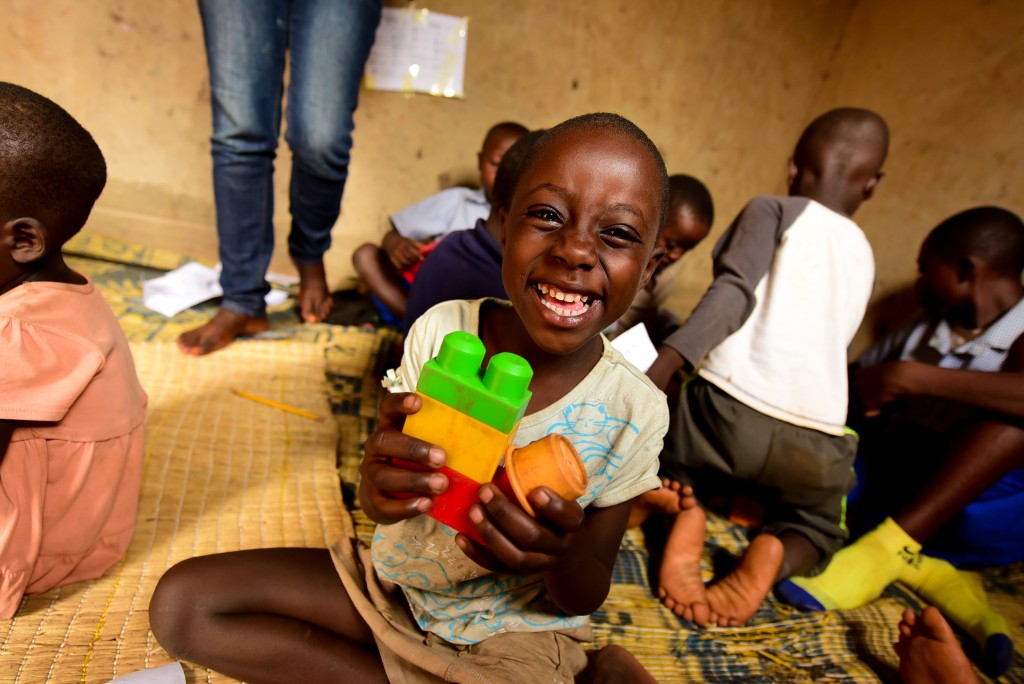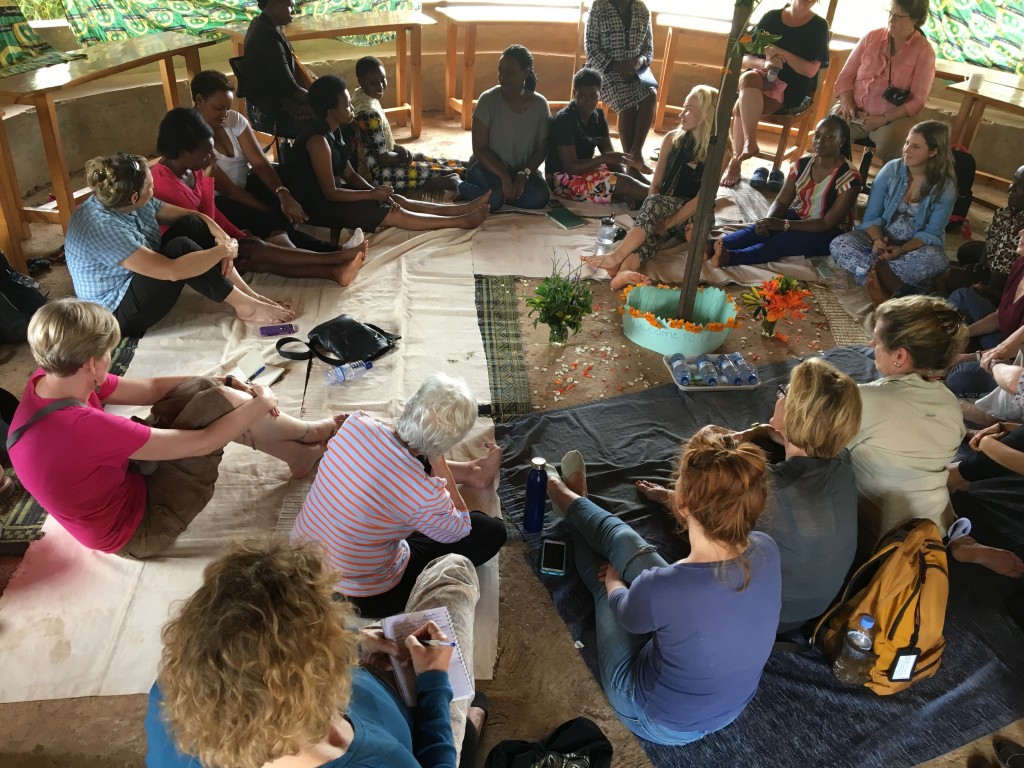
Rwanda 2018 – Day 5 – Gardens for Health Visit
By Marie Vayo-Greenbaum (Wilmington, DE)
Another beautiful African morning dawns as we sip our strong coffee and prepare to visit the facilities of Gardens for Health, just outside of Kigali. We have a full day’s visit planned with lots of interesting interactions along the way. It feels great to get off the bus and have an opportunity to walk around the farm where so many things are happening all at once. We are greeted first by Bailey who offers us an overview of the goals and objectives of this energetic non-profit.
Gardens for Health International (GHI) was founded in 2007 by three American students who believed that agriculture could play a huge role in addressing malnutrition concerns in Rwanda. They organized a grassroots effort whose objectives include addressing the lack of nutrition information, giving families access to the tools they need to improve their agricultural practices, and providing better nutrition for children. By working with local health clinics and encouraging participants to share what they have learned, GFH is able to extend its reach to over 2,000 families per year.
Families in the training program get easy-to-understand information about improving their health by increasing the variety of plants they grow in their gardens. They learn about crop rotation, natural fertilizers, and how to prepare a healthy and nutritious meal for their families in one hour using just one pot. The training takes four hours per week for 14 weeks and current graduation rates are at about 90%. Graduates are rewarded with a home garden package containing seeds for fruits, legumes, leafy greens, and market vegetables that can be sold to earn cash for cooking oil, fuel, and salt. Graduates also earn either chickens or rabbits to be raised at home for meat and eggs.
The program works! After completing the program, most families increased the number of crops they grow. Most of the mothers can identify and prepare balanced meals, and their children show significant improvements in their growth trajectories. In fact, the initial program expanded in 2016 to include a shorter, prenatal care program for pregnant women. This initiative covers health education as well as breastfeeding, pre- and postnatal hygiene, and infant nutrition. Women in this program also get home visits from health workers who can support them as they learn to be parents.
It was exciting for us to see the different components of the GHI program in action on their five acre farm. We were given a tour of many different garden plots growing complementary crops in rotation. We saw organic farming practices and learned about composting of human waste for fertilizers. Participants worked the gardens for extra money while learning new techniques, and everyone shared a daily community lunch. Children of participants attend school on the farm where they were learning English, singing songs, and bolstering their own health education. Our group left several large suitcases of clothing, books, and school supplies for the children who serenaded us in Kinyarwandan and clapped at our efforts to reciprocate by singing “Old Macdonald Had a Farm” to them.
We were offered the unique opportunity to share some woman-to woman time with program participants. Talking through an interpreter, we compared and discussed hurdles facing women in Rwanda and the U.S. We discovered that many of the challenges women face caring for a husband and family are universal. The discussion continued as we all shared a community meal cooked on location by participants at the farm.
Later in the afternoon, we broke into smaller groups to accompany GHI workers as they visited antenatal program participants in their homes. The GHI workers get to know families well as they coach them in prenatal nutrition, hygiene, and newborn care. They also train young mothers to be ambassadors in their own communities, sharing the education they have received in community focus groups. My group was privileged to visit the home of a young single mother with a newborn and a two-year-old. She and her mother are raising these children and other family members with the support of GHI. They were open to our questions and curious to learn more about our families in the US. It was a very intimate window into the impact that the GHI program is having on real families. We left our visit feeling uplifted by the great work of this program and encouraged about the bright future that is unfolding, one family at a time, in the beautiful country of Rwanda.



